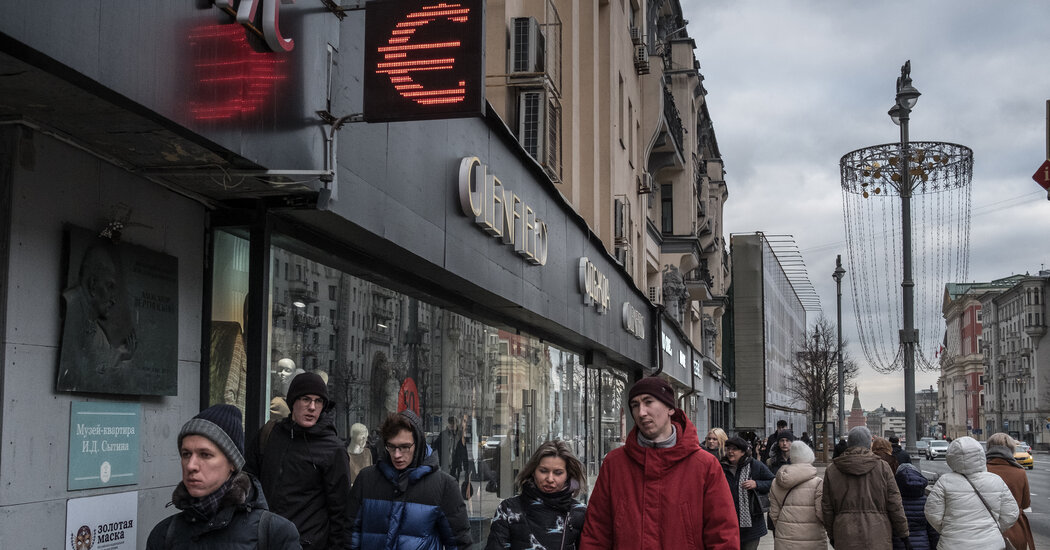Biden administration officials said on Saturday the United States and allies would impose new restrictions on the sale of rubles to Russia, undermining the country’s ability to support its currency in the face of new sanctions against its financial sector. That, in turn, could trigger inflation — and while government officials haven’t said so explicitly, they clearly hope it can fuel protests against Putin’s rule in Russia.
“We know that Russia has been taking steps to sanction-proof its economy since 2014, in part by building up foreign exchange reserves,” said Emily Kilcrease, senior fellow at the Center for a New American Security. “The central bank’s sanctions will limit their ability to leverage this asset, along with their ability to conduct monetary policy of any kind to manage the economic damage of other sanctions.”
The United States and its allies also took steps to put pressure on the Russian elites. A senior US official, who briefed reporters on Saturday night, said Europe and the United States would create a task force to “identify, track and freeze the assets” of Russian firms and oligarchs subject to sanctions, “their yachts, their mansions and any ill-gotten gains we can find and freeze under the law.” He said the goal would also be to kick them out of “their luxury apartments” and end “their ability to send their kids to posh universities in the West.”
The idea is to hit those closest to Putin and undermine their ability to live in both Russia and the West. One step, the United States and its allies said will be to restrict the sale of so-called golden passports that allow wealthy Russians allied to the Russian government to become citizens of Western countries and access their financial systems. .
While the steps are some of the toughest to date, the announcement falls short of a blanket Russia shutdown from SWIFT, which some officials view as some sort of nuclear option. Such a move would have essentially detached Russia from much of the global financial system.
And some experts say it may just prompt Russia to expand the alternative to the SWIFT system it created several years ago when it began trying to make its economy “sanction-proof”. But Russia’s equivalent system is mainly domestic; to make it a competitor to SWIFT, officials say, it would have to partner with China.
The actions on Saturday came on the same day that German Chancellor Olaf Scholz announced his government was authorizing a transfer of anti-tank weapons to the Ukrainian military, ending his insistence on providing only non-lethal aid such as helmets.

